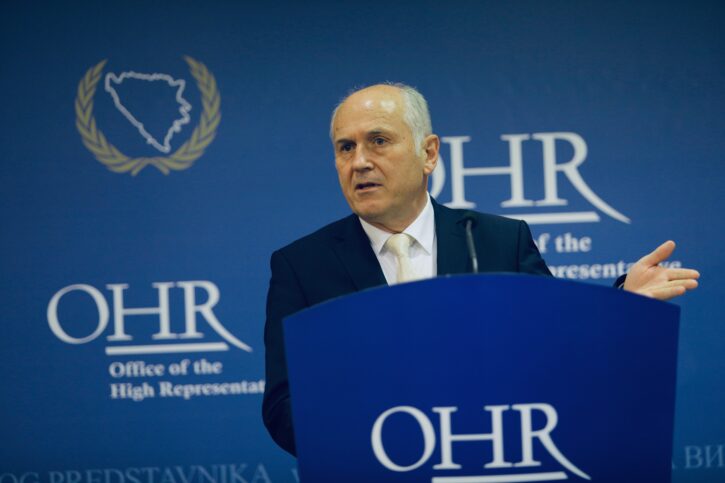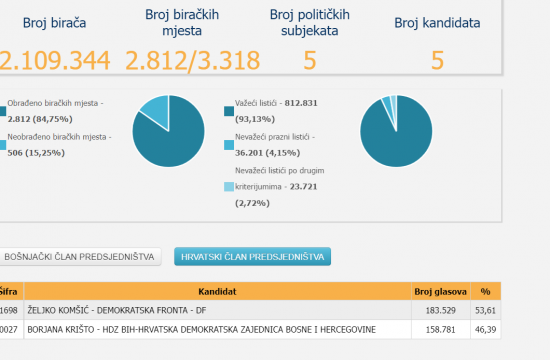
The idea that all citizens must have equal rights is not radical but is the way democracies work and elected leaders in Bosnia “should be ashamed” for failing to comply with a 2009 European Court of Human Rights ruling which says the country must end systematic discrimination based on ethnicity, a statement from the office of Bosnia’s international administrator said on Friday.
The statement comes two days ahead of the 10-year anniversary of the ruling in the ‘Sejdic-Finci case’.
Dervo Sejdic, a member of the Roma minority and Jakob Finci, a Jew, have sued Bosnia because the Constitution does not allow them to run for president or member of the upper house of the parliament.
That is because according to the 1995 Dayton Peace Agreement, the country’s presidency consists of representatives of Bosnia’s three constituent peoples – the Bosniaks, the Serbs and the Croats. Its House of Peoples is also filled with members of only those groups.
The European Court ordered Bosnia to fix the issue, but political leaders have not been able to agree on a solution since then.
“In its decision, the ECtHR held that difference in treatment exclusively on the basis of or to a decisive extent on a person’s ethnic origin cannot be objectively justified in a contemporary democratic society built on the principles of pluralism and respect for different cultures,” said the statement by the Office of the High Representative (OHR), Austrian diplomat Valentin Inzko, who oversees the civilian implementation of the 1995 Dayton Peace Agreement which ended the war and contains Bosnia’s Constitution.
“With the ECtHR ruling, BiH authorities were ordered to take necessary steps to uphold the rights of citizens and effectively end discrimination based on racial and ethnic grounds,” it added.
The OHR pointed out that the ruling came a year after the Stabilisation and Association Agreement between Bosnia and Herzegovina and the Europan Union, according to which the country “committed itself to address the European Partnership priorities, one of which was to change the electoral framework regarding members of the BiH Presidency and delegates of the BiH House of Peoples to ensure full compliance with the European Convention on Human Rights and the Council of Europe post-accession commitments”.
Bosnia’s Constitution says that the country “shall be a democratic state, which shall operate under the rule of law and that the European Convention for the Protection of Human Rights and Fundamental Freedoms and its Protocols shall apply directly in Bosnia and Herzegovina and have priority over all other law;” Inzko said.
“Having this in mind, it is high time to offer equal treatment to every citizen of BiH as also provided under the UN Universal Declaration of Human Rights” he added.
He named several similar ruling which Bosnia also failed to implement, saying that “the goal is always the same – to end discrimination.”
“This is a central element in making Bosnia and Herzegovina a real home for all its citizens, regardless of their ethnic affiliations. Elected leaders of this country should be ashamed for failing to comply with the ECtHR ruling in the Sejdić-Finci case for an entire decade, thus maintaining the discrimination,” he said.






